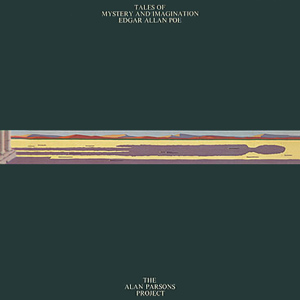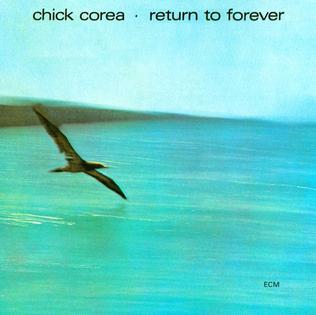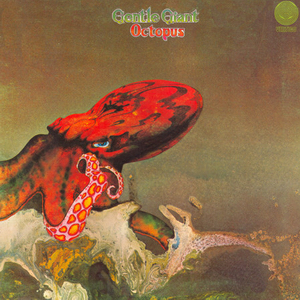Panzerpappa - Koralrevens Klagesang (2006)

- Korallrevens Klagesang I
- Korallrevens Klagesang II
- Kantonesisk Kanotur
- Apraxia
- Snill Sang På Bånd
- Etyde
- Vintervake (Featuring Richard Sinclair)
- Frenetisk Frenologi (For Nybegynnere)
- Korallrevens Klagesang III
Listen : Spotify
Introduction :
Members :
Steinar Børve: saxophone and keyboards
Trond Gjellum: drums and percussion
Anders Krabberød: bassguitar and Chapman stick
Jarle G. Storløkken: guitars and accordion
Panzerpappa is a prog act from from Oslo, Norway. In their own words, the band plays "progressive rock with a friendly face" but is more accurately described as RIO/Avant-Prog with influences stretching back to 70s bands like Henry Cow, King Crimson and Samla Mammas Manna with a dash of Canterbury like Hatfield and the North.
The band was started up by drummer Trond Gjellum in 1996 and then gained members, most notably Steinar Børve on Saxophone and keyboards. Their debut "Passer Gullfisk" was released in 2000, but the original lineup was not to last. After a lineup change in their second release, the band lost both then guitarist and bass player at the start of 2002. However, lost members are quickly replaced when Trond plays with guitarist Jarle G. Storløkken and bassist Anders Krabberød in a backing band for Canterbury-legend Richard Sinclair during march that same year. Both are offered a place in the band and since, that lineup has produced two more albums, "Farlig Vandring" released in 2004 and "Koralrevens Klagesang" (lament of the coral fox) from 2006.
My own relationship with Panzerpappa doesn't really stretch that far back. All the members are academics and as a group, they sport competance in musicology, theoretical astro physics, social anthropology, philosophy and biology. It was actually during my own biology bachelor that I got to know Anders Krabberød, their current bassist. We both started our biology studies in 2005, but ironically, I didn't
really know Panzerpappa before I listened to their last album late last year. That last is the 2006 album "Koralrevens Klagesang" which offers a guest appearance by our much beloved Richard Sinclair (Caravan / Hatfield and the North / Camel) and it got some highly favourable reviews after it's release. However, avant-prog's lack of mainstream appeal keeps it a somewhat hidden treasure whose riches are mostly available for those with a specific interest in the genre.
Detailed Review :
The album starts with what feels like an intro.
Koralrevens Klagesang I opens with some mysterious sounds but eventually, brass fades in to a mournful tune lasting for a couple of minutes until
Koralrevens Klagesang II comes on. Prog looms as the music turns more chaotic and unpredictable, but it's full of energy and buried within here are some amazingly effective hooks. It's overall feel is mysterious and perhaps slightly sinister.
Kantonesisk Kanotur (cantonesian canoe trip) is immediately immersive with a gentle start on keyboards and guitar before a wonderful little earwig flute melody weaves it's way into the music. Not long after, we get the first thematic shift and what follows is a little prog epic where structures shift from tangible to untangible and various melodies and hooks come and go. It feels strong yet quite subtle at the same time and features many hair-raising moments of delight. Excellent!
Apraxia continues the mysterious mood in a slightly more serene direction and, probably because it's so fresh in memory, actually reminds me just a little a bit of Crystal Silence from Return to Forever's debut. What I guess might be vibraphone, guitar and bass form a structure with a more free and slightly melancholic saxophone layering melodies on top. Acoustic guitar join in towards the end for a delightful result, making this song the most relaxing of the bunch.
Snill Sang på Bånd is a departure from it's predecessors and is cheerful and full of energy like a prog version of your kid's 10th birthday. It reaches some kind of epic climax before we get a thematic shift to something more noir-jazzy and it suddenly sounds more like your theme to browsing clubs in New Orleans. I love this part! Before it's over, we get a quick return to the fun at the start. Overall, there's a lot of contrasts in this song and it's a little more in your face than what comes before it, but they somehow make it work very well.
Yet more mystery awaits on
Etyde which opens with guitar and keyboard alternating on a little picky riff of sorts which along with drums and bass serves as a platform for more saxophone on top. When the song is nearly midway, it becomes more sinister and sounds like it could be a theme to something called "Attack of the giant mutant space slug". Sax and a wonderful flute (I love flute) chase the spooky bits away before it's over for a happy ending .. although a return of the mysterious guitar just at the very end may hint at the possibility of a sequel.
Vintervake is the only song with lyrics and they are sung by none other than Canterbury's Richard Sinclair. The track makes for such a delicious listening, I get shivers everytime I listen to it. Richard does not steal the show entirely, Panzerpappa's performance on the track is confident and it's definetly their song you're listening to. However, there are some different themes flying around here, but the best are still the parts with sung lyrics. If I knew what they were, I'd sing along. Vintervake has a subtle beauty that is rare and canterbury appreciaters should definetly look this one up.
Frenetisk Frenologi (For Nybegynnere) (Frenetic Frenology for beginners?) is the album's longest track and is of the more playful and fun sort. There's certainly a lot going on in different layers, you have the sax doing much of the melody with drums and bass forming a solid foundation, but you also have guitar, keyboards and other percussion instruments making their appearances somewhere in the middle of it all. It's a rich listen and you might have to close your eyes and tap your foot to soak it all up. Thematic shifts make the song much more chaotic and we even get some aggressive sounding moments with distorted electric guitar building up to a climax about halfway after which everything becomes quiet .. Then sax comes back in to a background of what sounds like wind and some strange distortive noise. At this point, the song has a somewhat mournful post-apocalyptic feel and in my mind's eye I see dust blowing around empty concrete buildings. It doesn't take too long before the playful theme from the start makes it's return. More thematic shifts happen with some lovely performances on guitar, flute and piano before it's all over.
Like nr. 1 serves as an intro to the album,
Koralrevens Klagesang III serves as an outro although it's a wonderful little song that would stand confidently also outside of this album. It plays somewhat on the theme of the first, but this time with a lot of acoustic guitar and with a more medieval folky flavour than the first. It's a melancholic and serene little guitar tune that could lull you to sleep if you let it. Lovely!
Review Summary :
At first, I didn't really want to review this one because my friendship with one of the band members might put my credibility as a reviewer at stake and there's also the chance he might read this which scares me a little bit. However, after a chat with Anteater who also suggested I do this, I realized I'm not the only one who thinks the album is worthy of praise around here and, seeing as it has all the weird norwegian names and so on, it made sense that I would be the one to do it.
Stepping back a bit and looking at Koralrevens Klagesang in it's entirety, it's main impressions to me are melancholy, mystery, moments of beauty but also the odd sinister, spooky sounds like you'll find in other RIO acts like Univers Zero. True to their own friendly description, there's also a sprinkling of cheerfulness and fun. Performances are superb all round and the album sounds amazing with rock-solid production. There's a lot of instruments being played over the tracks but they all stand out as clearly as they should in the mix and to me, it all sounds right. There's plenty of warm sounds and lush reverberations floating around. One thing that strikes me as weird is that listening to it again with a slightly more analytical approach, I'm surprised at how vivid some of the imagery the album conjures up is. It makes me wonder a bit why several of the songs have such nonsensical titles (frenetisk frenologi is a good example). However, their slightly whimsical approach is part of Panzerpappa's charm and it's nice to see again that something that sounds so accomplished doesn't have to be 100% serious all the time.
As an avant-prog album, I think it's quite accessible. A lot of it's appeal will be subtle and may take a few listenings to get, but where some albums in the genre may feel exclusive, this one will probably have an instant appeal which will only grow over time. No, I wouldn't recommend it to
everyone, but for those who like a little prog and know a little RIO, Koralrevens Klagesang is a little treasure just waiting to be discovered.
Panzerpappa is a group with highly skilled and competent musicians and Koralrevens Klagesang is (as far as I know) their finest moment yet. This is actually the best norwegian album I've heard in a long time.
Toretorden's Treasure Trove score : 6/6












 Linear Mode
Linear Mode
